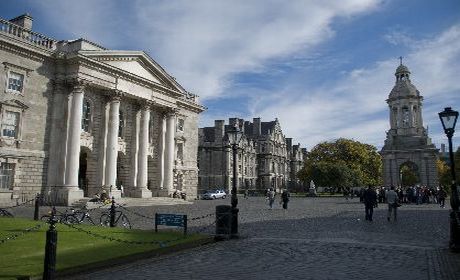BSc Human Health & DiseaseAdd to shortlist
Natural Sciences
Natural Sciences - Other
BSc Human Health & Disease
4 years
€3000 pa
Programme profile
The Human health and disease degree brings to life the fascinating connections between structure and function in the human body. It explores the disease process in depth, including how medical therapies act to treat or even prevent disease. For example, understanding brain structure and biochemistry allows us to appreciate how neurones communicate and this in turns helps biomedical researchers to find new and effective ways to treat and prevent Alzheimer’s Disease.
A central feature of the learning experience is the development of a core set of real-life, transferable skills in the following areas; laboratory technique, group project work, data analysis, public presentation, report writing, research methodology and critical thinking
Programme content
Years One & Two
You will study the structure and function of the human body from a ‘molecule to man’ perspective through lectures and laboratory classes in cell biology, biochemistry, physiology and anatomy. The relevance of your course of study to society at large will be explored through the study of a module in science, technology and society. Modules based on critical thinking, problem-based learning, presentation skills and research and statistics will further contribute to the development of a core skill set, as outlined above.
Years Three & Four
You will study a combination of modules which cover diseases of specific organ systems will be taken, e.g. gastrointestinal disease, cardiovascular disease etc. Delivery of clinically focused material by specialist clinicians within each of these areas will be included.
As a fourth-year student, you will undertake advanced modules on the molecular basis of disease and cutting-edge advances in biomedical science. A major component of the fourth year will be a comprehensive laboratory-based project in biomedical research supervised by leading researchers in Trinity College and its affiliated teaching hospitals. Project areas may be in the areas of cancer biology; investigation of brain disorders; tissue engineering; exercise and rehabilitation; gastrointestinal disorders and inflammatory disorders to name but a few
Entry Requirements
Students must present six subjects of which two must be at grade C or above at Advanced GCE (A-Level. The other subjects must be at least at grade C or above on GCSE or Advanced Subsidiary GCE (AS) papers. The six subjects must include: English, Mathematics and a language other than English.
A-Levels required at Grade C in Biology and in either Physics or Chemistry
535
No
No
No
05 November
01 May

 Join us on Facebook
Join us on Facebook